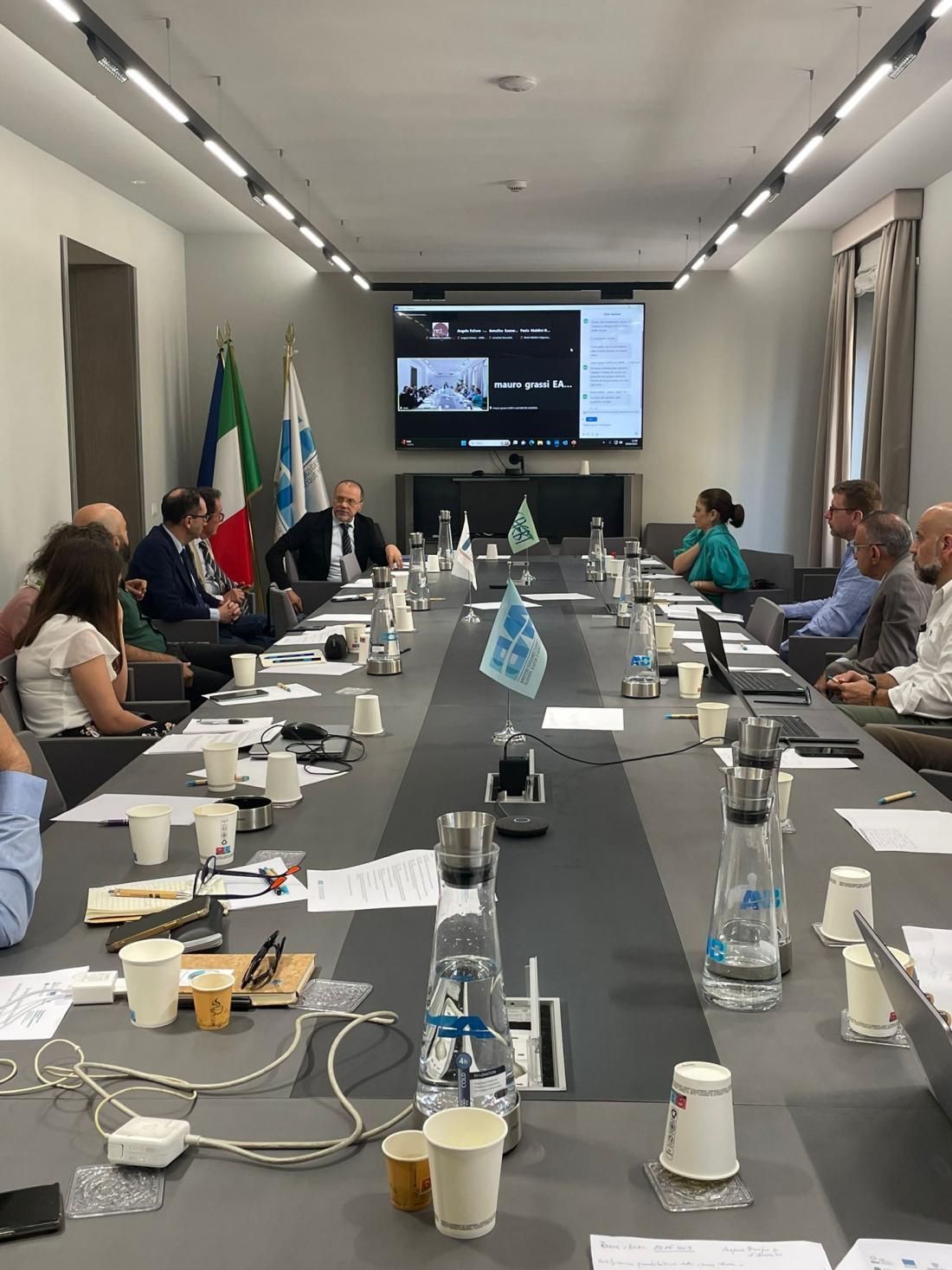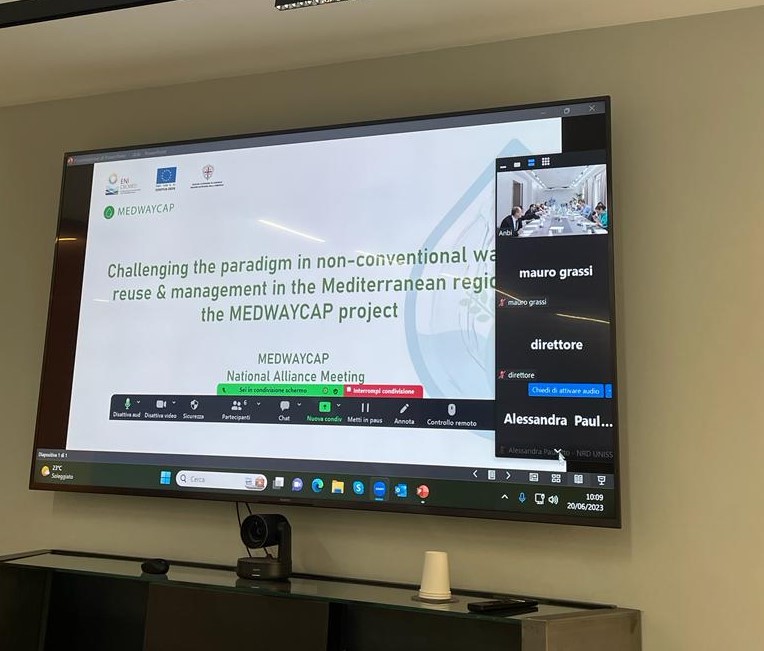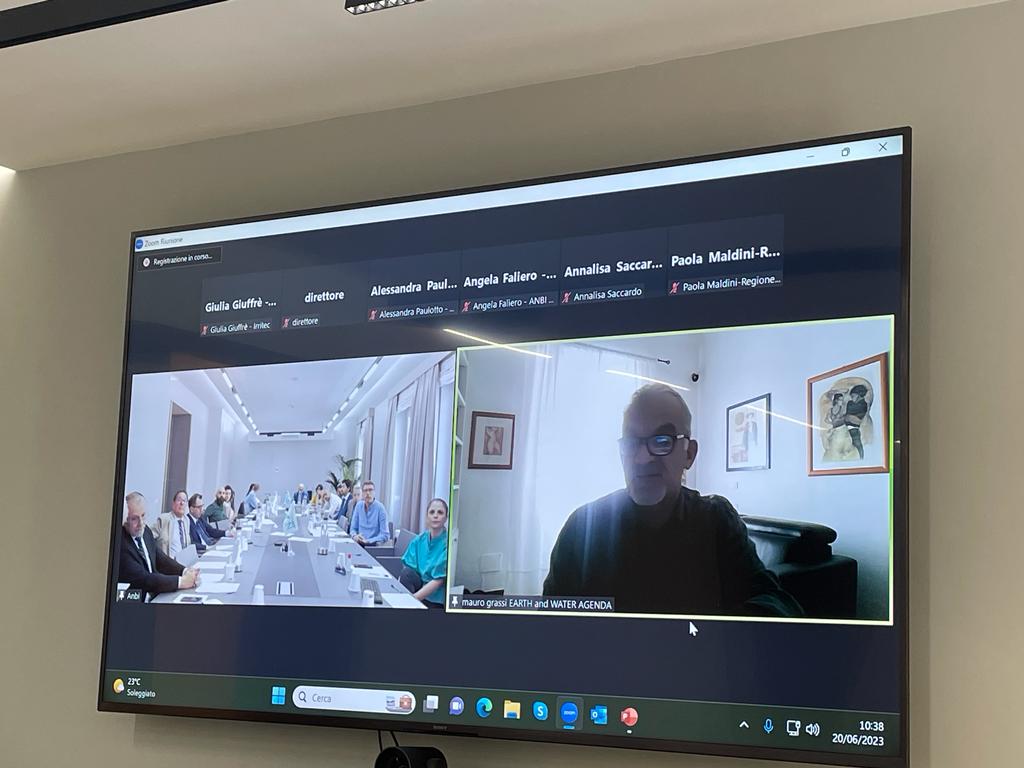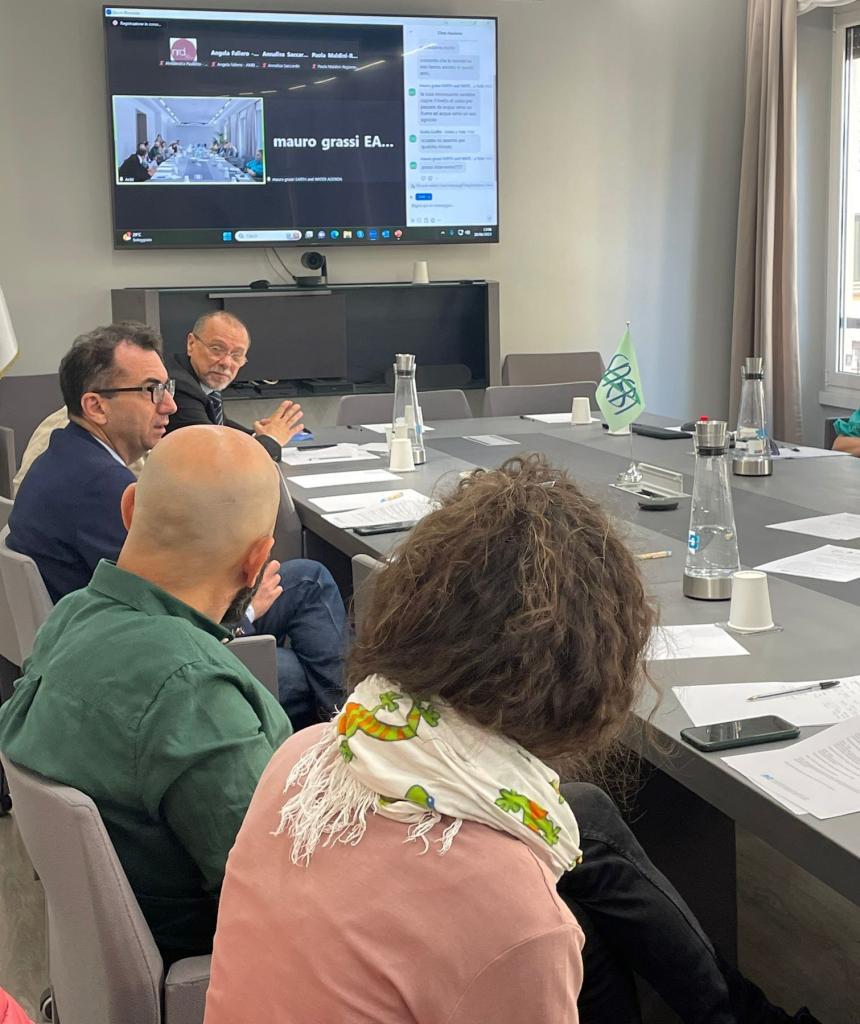MEDWAYCAP: Italian stakeholders drive sustainability and new market dynamics in the Non-Conventional Water sector

MEDWAYCAP has identified and highlighted a problem in Italy during a workshop held in Rome on 20 June 2023 involving the main Italian stakeholders in the water sector. Possible solutions lie in the ability to generate and stimulate co-creation processes, including stakeholders from the economic and business sectors, to make the best possible use of Non-Conventional Water (NCW) as an answer to the scarcity problems already present in the current situation and expected in the future.

- Innovation, research, and development: in order to avoid a gap between the end of research projects and the development of products or solutions that can be placed on the market, it is necessary to develop innovation in collaboration with companies from the conception phase of the research project proposal.
- Capitalising on the results of research and technology transfer to the market, exploiting the asset through start-ups or other intermediaries to arrive at products that can be placed on the market (industrialisation of results through patents). It is necessary to change the knowledge transfer paradigm into a constant and penetrating action of valorising research results and intellectual assets.
- The need for investment in infrastructure and the removal of bureaucratic or regulatory barriers: no market is isolated from the general context in which it operates, and the limits to the dissemination of valid research results are often the result of too costly 'tailoring' to infrastructural, regulatory and bureaucratic rigidities.
- There are no 'one-size-fits-all' solutions, use more than one solution and more than one water source at a time: invest in a broad and diversified portfolio of solutions that provide opportunities to build robust resilience linked to widespread spatial solutions rather than simply tied to one extensive work or technology

These are some of the questions addressed during the workshop and the related recommendations identified with the stakeholders during the national event "Sustainable strategies and technological innovations for the use of non-conventional water resources", organised in the framework of the MEDWAYCAP project, which took place on the 20th of June at the headquarters of the Italian Consortium for Reclamation and Irrigation (A.N.B.I.) in Rome.
The event was co-organised by the three Italian partners of the MEDWAYCAP project - Centre International de Hautes Etudes Agronomiques Méditerranéennes - Mediterranean Agronomic Institute of Bari (CHIEAM Bari), NRD - Desertification Research Centre - University of Sassari and Centro EuroMediterraneo per lo Sviluppo Sostenibile (SVI.MED.) with the strategic support of A.N.B.I., the Associated Partner.
The event aimed at identifying concrete governance and industrial management solutions within the framework of a circular economy. The discussion resulted in recommendations that were later included in the MEDWAYCAP Memorandum of Understanding and will contribute to the achievement of the Union for the Mediterranean (UfM) water agenda. The event was attended by national-level institutions including Earth and Water Agenda - EWA Foundation, Aqueduct of Puglia Region-AQP, Water Research Institute-IRSA CNR, Policy and Bio-economy Research Centre UNIBA: CREA BP, the University of Bari Aldo Moro, the Department of Soil, Plant and Food Sciences, University of Bari Aldo Moro- Di.S.P.A, and Water Users' Associations and Sustainability- WUAS, Piemonte Region, Land Reclamation Consortium Renana, ANBI Piemonte.

Adriano Battilani - General Secretary Irrigants d’Europe Senior Researcher - Directive Technical Staff Expert A.N.B.I. and Roula Kahdra - Senior Researcher| International Officer| Water Resources at CIHEAM, Bari, both facilitators of the workshops - emphasised how important and strategic it is to identify dialogue points in order to capitalise on knowledge and research results and the enhancement of the ecosystem benefits offered by the environment to productive activities, including sustainable production cycles, such as the inclusion of variables that do not fit into the simple cost/benefit calculation.
The Italian experience discussed during this national event will be evaluated for its replicability and effectiveness in the broader context of the Mediterranean.









